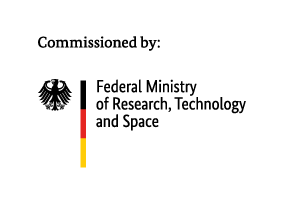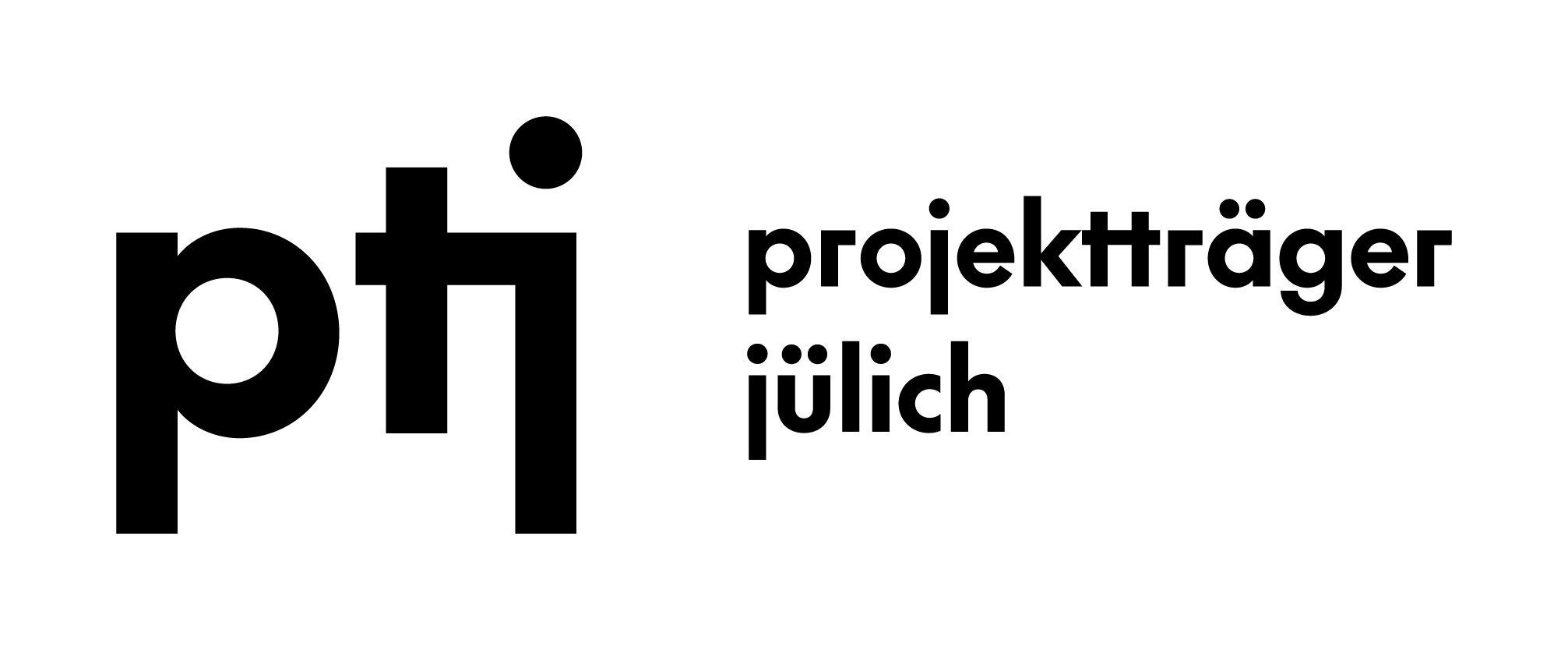Call for abstracts



Closing the gap –
Validating and implementing new approach methodologies in a regulatory context (ValNAM)
A joint initiative by BMFTR (German Federal Ministry of Research, Technology and Space) and ZonMw (The Dutch organisation for knowledge and innovation in health, healthcare and well-being)
The call ValNAM aims for validation of new approach methods in a regulatory context, with the ultimate goal to implement new animal-free, human relevant methods as OECD guidelines or establish qualified models to be used in efficacy testings for new pharmaceuticals.
In this regard projects are expected to increase in technology readiness levels during the duration of the project, thus enabling them to prepare documentation for a timely (2-3 years post project finalisation) regulatory evaluation and approval, if feasible.
For further information regarding the call please refer to the FAQ section below.
We strongly encourage you to use the guidance provided by OECD, ECVAM and various other.
Submission
New Deadline: 26.05.2025
Please use the PtJ Submission Platform to submit your proposal.
DOCUMENTS
- call text
- Dutch national annex renewed (version 25.02.2025)
-
German "Richtlinie zur Förderung von Projekten zum Thema 'Validierung und Implementierung humanbasierter neuer Methoden im regulatorischen Kontext'" ("Bekanntmachung" BAnz AT 06.01.2025 B5 und "Änderungsbekanntmachung" BAnz AT 02.04.2025 B3)
- template project proposal
Note for Dutch companies interested in ValNAM
Subordinated loan as equity
In 2017, the Dutch Ministry of Economic Affairs published a circular explaining when a subordinated loan can be regarded as equity. However, this circular was withdrawn on the 13th of September 2024, following a court ruling at the highest instance on this point. In concrete terms, this means that a subordinated loan can no longer be taken into account in the calculation of equity. This is important for the eligibility of participating companies, as one condition of the GBER is that aid cannot be provided to undertakings in financial difficulties. Dutch companies need to be aware that to receive funding, they need to provide ZonMw with a signed statement that their undertaking is not in “financial difficulty”, as mentioned in Article 2(18) of Commission Regulation (EU) No 651/2014 of 17 June 2014. This statement will be requested when the application is recommended for funding. If this cannot be provided, ZonMw is obliged to refuse the requested grant.
This call aims to fund the validation of new approach methods in a regulatory context, with the ultimate goal to implement new animal-free, human relevant methods as OECD guidelines or establish qualified methods to be used in efficacy testings for new pharmaceuticals.
In this regard, projects are expected to increase in technology readiness level (TRL) during the duration of the project, thus enabling them to prepare documentation for a timely regulatory evaluation and approval, if feasible.
Eligible projects should present a method with a technology readiness level of 3-7. The method described has to be human relevant. The project proposal involves at least one eligible research partner from each country participating in the call.
Project partners should contain at least one partner from a research institute and at least one partner from a commercial organization. The consortium coordinator and each of the additional consortium partners asking to be financed are eligible to receive funding from the two funding organizations participating in the call.
Yes, applicants may contribute to multiple consortia, as long as there is a distinctive separation of work packages contributed to each consortia. However, please note, that applicants may not coordinate two different consortia.
International partners may contribute to the consortia, will however not be eligible for funding through the participating funding agencies and thus, will need to provide their own resources.
If you are looking for a suiting project partner please reach out to the JCS as we may be able to assist you. You may also find the following websites useful for identifying potential collaborators.
- https://bundesnetzwerk-3r.de (available in German only)
- https://www.bf3r.de/
- https://www.bf3r.de/en/3r_centers_and_information_platforms-297793.html
- https://www.biologie.uni-konstanz.de/leist/caat-europe/
- https://www.3r-netzwerk.nrw/en/
- https://wi3r.de/
- https://cost-improve.eu/
- https://ontox-project.eu/
- https://www.risk-hunt3r.eu/
Please use the available online resources to assess your technology readiness, such as the ReadEDTest (https://readedtest.u-paris-sciences.fr/). In addition, you may find the following publications insightful:
Bal-Price, A. (2018) “Recommendation on test readiness criteria for new approach methods in toxicology: Exemplified for developmental neurotoxicity”, ALTEX - Alternatives to animal experimentation, 35(3), pp. 306–352. doi: 10.14573/altex.1712081.
https://www.altex.org/index.php/altex/article/view/353
Crouzet, T. (2023) „ReadEDTest: A tool to assess the readiness of in vitro test methods under development for identifying endocrine disruptors“, Environment International, Volume 174, doi: 10.1016/j.envint.2023.107910.
https://www.sciencedirect.com/science/article/pii/S0160412023001836
Jacobs, M.N. (2020) „Chemical carcinogen safety testing: OECD expert group international consensus on the development of an integrated approach for the testing and assessment of chemical non-genotoxic carcinogens“, Arch Toxicol 94, 2899–2923, doi: 10.1007/s00204-020-02784-5
https://link.springer.com/article/10.1007/s00204-020-02784-5
Krebs, A. (2019) “Template for the description of cell-based toxicological test methods to allow evaluation and regulatory use of the data”, ALTEX - Alternatives to animal experimentation, 36(4), pp. 682–699. doi: 10.14573/altex.1909271.
In this call, ZonMw aims to fund the Dutch partner(s) of four to eight research projects, each with a maximum of K€ 300-600 for the Dutch part of the budget. ZonMw will not be able to fund more than a total of M€ 2.5.
The BMFTR aims to fund the German partner(s) of four to eight research projects, each with a maximum of K€ 600-1200 for the German part of the budget. The BMFTR will not be able to fund more than a total of M€ 5.
Funding rates have to be distinguished by small, medium and large enterprises as well as the type of research (industrial or experimental research and feasability studies):
‘Industrial research’ means the planned research or critical investigation aimed at the acquisition of new knowledge and skills for developing new products, processes or services or for bringing about a significant improvement in existing products, processes or services. It comprises the creation of components parts of complex systems, and may include the construction of prototypes in a laboratory environment or in an environment with simulated interfaces to existing systems as well as of pilot lines, when necessary for the industrial research and notably for generic technology validation (taken from COMMUNICATION FROM THE COMMISSION Framework for State aid for research and development and innovation (2014/C 198/01)).
|
Industrial research |
Small enterprises |
Medium-sized enterprises |
Large enterprises |
|
Basis |
50% |
50% |
50% |
|
Top-up |
20% |
10% |
none |
|
Knowledge dissemination |
15% |
15% |
15% |
|
TOTAL |
85% |
75% |
65% |
‘Experimental development’ means acquiring, combining, shaping and using existing scientific, technological, business and other relevant knowledge and skills with the aim of developing new or improved products, processes or services. This may also include, for example, activities aiming at the conceptual definition, planning and documentation of new products, processes or services.
Experimental development may comprise prototyping, demonstrating, piloting, testing and validation of new or improved products, processes or services in environments representative of real life operating conditions where the primary objective is to make further technical improvements on products, processes or services that are not substantially set. This may include the development of a commercially usable prototype or pilot which is necessarily the final commercial product and which is too expensive to produce for it to be used only for demonstration and validation purposes.
Experimental development does not include routine or periodic changes made to existing products, production lines, manufacturing processes, services and other operations in progress, even if those changes may represent improvements (taken from COMMUNICATION FROM THE COMMISSION Framework for State aid for research and development and innovation (2014/C 198/01)).
|
Experimental development |
Small enterprises |
Medium-sized enterprises |
Large enterprises |
|
Basis |
25% |
25% |
25% |
|
Top-up |
20% |
10% |
none |
|
Knowledge dissemination |
15% |
15% |
15% |
|
TOTAL |
60% |
50% |
40% |
‘Feasibility study’ means the evaluation and analysis of the potential of a project, which aims at supporting the process of decision making by objectively and rationally uncovering its strengths and weaknesses, opportunities and threats, as well as identifying the resources required to carry it through and ultimately its prospects for success (taken from COMMUNICATION FROM THE COMMISSION Framework for State aid for research and development and innovation (2014/C 198/01)).
|
Feasibility studies |
Small enterprises |
Medium-sized enterprises |
Large enterprises |
|
Basis |
50% |
50% |
50% |
|
Top-up |
20% |
10% |
none |
|
TOTAL |
70% |
60% |
50% |
- https://www.rivm.nl/en/documenten/landscape-new-approach-methodologies-nams-safety-assessment-pharmaceutical-products
- https://www.rivm.nl/en/documenten/landscape-new-approach-methodologies-nams-for-safety-assessment-of-chemical-substances
- EU TRL self-assessment tool:
https://horizoneuropencpportal.eu/sites/default/files/2022-12/trl-assessment-tool-guide-final.pdf - EURL ECVAM test method submission:
https://joint-research-centre.ec.europa.eu/reference-measurement/european-union-reference-laboratories/eu-reference-laboratory-alternatives-animal-testing-eurl-ecvam/alternative-methods-toxicity-testing/validation-and-submission-process/eurl-ecvam-test-method-submission_en - Current OECD Guidelines for assessing chemical safety (available in German only): https://www.bfr.bund.de/de/oecd_richtlinien_zur_toxikologischen_pruefungen_von_chemikalien-61575.html
- Guidance Document on the Validation and International Acceptance of New or Updated Test Methods for Hazard Assessment (TG34):
https://www.oecd-ilibrary.org/environment/guidance-document-on-the-validation-and-international-acceptance-of-new-or-updated-test-methods-for-hazard-assessment_e1f1244b-en - ICCVAM Validation workgroup on how to prepare test methods for evaluation: https://ntp.niehs.nih.gov/whatwestudy/niceatm/resources-for-test-method-developers/submissions
- EMA European Medicines Agency (information on “innovation task force“)
https://www.ema.europa.eu/en/human-regulatory-overview/research-development/supporting-innovation
https://www.ema.europa.eu/en/committees/working-parties-other-groups/chmp/3rs-working-party - https://charite3r.charite.de/
- NAM Navigator ZonMw: Home - NAM Navigator
- List of 3R-centers in Germany and Europe: https://www.bf3r.de/en/3r_centers_and_information_platforms-297793.html
If you are in need of an OECD contact person, please refer to the following website for your national coordinator of the OECD test guideline program:
https://www.oecd.org/content/dam/oecd/en/topics/policy-sub-issues/testing-of-chemicals/national-coordinators-of-test-guideline-programme.pdf
Please indicate your interest in the binational ValNAM funding call, when contacting them prior to proposal submission. Contact points from Netherlands and Germany have been informed about the publication of this call.
